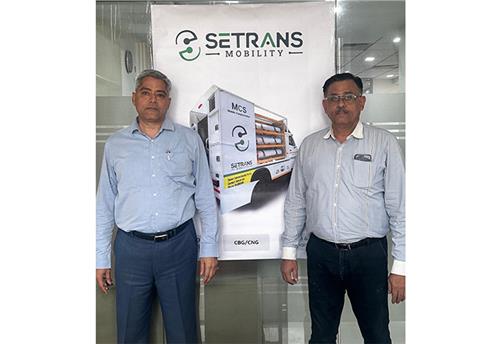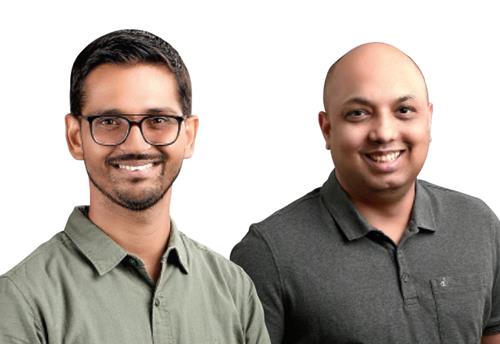‘Students in India are capable of creating affordable solutions. All they need is proper direction and the right kind of platform and resources to innovate.’
Ravi Pandit, chairman & Group CEO, KPIT Technologies, on industry-academia collaboration inspiring young minds in India to innovate new mobility solutions, and KPIT’s Sparkle initiative involving enthusiastic students.
Ravi Pandit, chairman & Group CEO, KPIT Technologies, talks to Amit Panday about the current scale of industry-academia collaboration inspiring young minds to innovate new mobility solutions, the need to nurture them, and how KPIT’s Sparkle initiative is involving enthusiastic students to ponder over some real life challenges. Excerpts:
How important is the role of a productive collaboration between industry and academia for the future of mobility solutions in a developing country like India?
Our fundamental belief is that the world needs to change substantially in the areas of both mobility and energy. Developing solutions in the area of mobility such as vehicles that are clean, connected, comfortable and safe, and in the area of energy such as affordable and renewable energy is needed. Younger and brighter minds have to step up and come forward to develop such solutions. That is why the engineering and science colleges are relevant.
In India, we face a lot of technical and economic challenges. But these also provide us with unique opportunities to build affordable solutions that can be successfully replicated across the globe. We believe that students of our country are capable of creating such solutions. All they need is proper direction and the right kind of platform and resources to innovate.
In this regard, having a productive collaboration between industry and students (primarily) will bring innovative young minds to the fore. We at KPIT believe that there is tremendous latent energy and imagination in our students that need to be harnessed, and this is what the KPIT Sparkle contest is trying to bring out. Our experience over the last two years has shown that there lies a vast potential in this domain which is unutilised.
Do you think the industry and the educational institutes must work together on a bigger scale than what it is currently to propel the scale of innovation?
India is beginning its journey of innovation, and I believe all of us have to put in our efforts to take it forward. It is important that innovation be spurred not only by the economic necessities, but it also by the technological advancements that are happening.
There are a lot of technological advancements that are taking place in the area of both mobility and energy, which are creating tremendous opportunities. For example, moving away from pure fossil fuel and towards electric and fuel cell technology, or moving towards shared mobility on account of better connectivity and internet, or autonomous driving. These are the things that are driven by new technologies. We believe that the need is to bring more such technologies to the fore.
What is your impression of the current breed of engineering students in India in the context of their interest in the automotive industry and the drive towards addressing the challenges through their new ideas and innovative solutions? What are the possible areas of improvements?
We are witnessing an increase in the interest of the students of India towards exploring and creating new things in the automotive domain. KPIT Sparkle 2016 has generated an extraordinary level of interest among the engineering and science students. It is just the second year of KPIT Sparkle, and we saw student participation going up from 1,500 last year to 10,000 this year, which is a proof of how passionate these students are about working in these areas.
In terms of the number of ideas that passed the first screening test, it increased from 60 ideas last year to 350 ideas this year, which shows the extent of depth in their knowledge. This time, we saw a very high level of contribution from the engineering and science students as compared to last year and they were filled with a soaring levels of enthusiasm, passion and had a good deal of knowledge about what they had built.
Having said that, these students were not only passionate about bringing a technological change for the sake of it, but they demonstrated the spirit of wanting to do something which will improve the quality of life in the country, society and community; that to me was extremely important. Interestingly, most of them said that the source of their innovation was some bad experience that their parents or friends had in the past, and that is why they thought of developing a solution to overcome those challenges.
Therefore, while developing solutions using newer technologies, it is important to keep in mind the purpose of why you are doing it and who is going to benefit from such solutions. In this context, I believe that the young and bright minds should be thinking about developing cleaner, greener, efficient and intelligent technologies.
Are there any updates on KPIT's smart electric bus? What is the expenditure involved in the development of first prototypes, and when will the company supply these to the government for trial runs / full-fledged deployment?
We have received a tremendous response from many transport undertakings, operators and OEMs. The recent series of events related to KPIT's Smart Electric Bus that happened in Delhi and other cities is only enhancing the perceived need for these solutions. So we see very good traction building up.
RELATED ARTICLES
Setrans Mobility Booster Charging top-up 25% EV range in 15 minutes
Two enterprising tech-savvy entrepreneurs Rana Roshan Singh and Vivek Ummat of Noida, Uttar Pradesh-based start-up Setra...
'Our products are proudly 100% designed and made in India'
Creatara Mobility, a New Delhi based electric two-wheeler startup, claims to have tackled various challenges in making i...
'EVs have been around for a much smaller time than ICE, so best practices are still evolving'
EV OEMs and start-ups are under pressure to reduce production costs and bring them close to ICE counterparts. Vaibhav Ku...





 By Amit Panday
By Amit Panday
 17 Feb 2016
17 Feb 2016
 4690 Views
4690 Views









